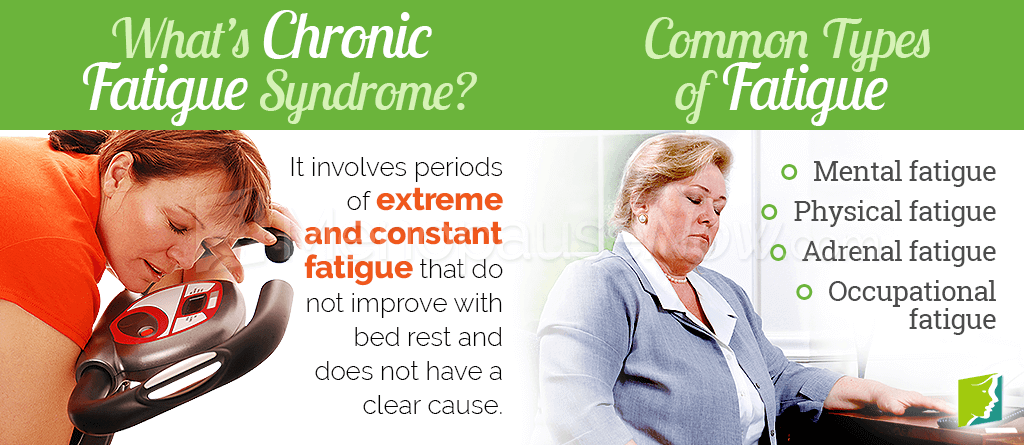Sleep and Fatigue
Most adults need seven to eight hours of sleep each night to function normally, but women ages 30 - 60 report getting only an average of six and a half hours of sleep during the work week.
The restorative energy gained from a proper night of sleep is essential to a woman's health and ability to function throughout the day. During menopause, many women find themselves lacking the energy they once had. Fatigue affects the majority of women, with up to 80% of working women reporting feeling fatigued on a regular basis.
If a woman is consistently getting the recommended amount of nightly sleep, yet still experiences a lack of energy during the daytime, it is important to look into possible causes of fatigue in order to provide relief.
Definition of Fatigue
Fatigue is defined as an ongoing and persistent feeling of weakness, tiredness, and lowered energy levels. This should be distinguished from drowsiness, which implies an actual urge to sleep. Fatigue involves a lack of energy rather than sleepiness.
Another important distinction is the difference between fatigue as a symptom of menopause and chronic fatigue syndrome, which is a more serious and complicated disorder. Chronic fatigue syndrome includes periods of extreme fatigue that do not improve with bed rest, may worsen with physical activity, and are often linked to other illnesses. In order to tell if you are experiencing fatigue during menopause, keep reading to learn more about the specific symptoms of this common condition.
Symptoms of Fatigue
Fatigue can be distinguished by a variety of psychological and physical characteristics. Many times, these symptoms are experienced together. A woman in menopause might feel:
- A lag in energy levels that lasts all day
- Shorter bursts of fatigue that are intermittent
Fatigue can also manifest itself in irritability or an inability to concentrate on tasks at hand, negatively impacting many aspects of life, including personal and professional relationships.

Sleep deprivation has also been shown in studies to cause a difficulty in moderating emotions and handling stress, decreased hand-eye coordination, poor reaction times, and a weakened immune system. Overall, fatigue is a serious symptom of menopause, as it has such a far-reaching effect on a woman's overall health.
Fatigue is particularly frustrating because it affects both the mind and body, making it difficult to complete normal tasks. Physical characteristics may include general feelings of drowsiness or fatigue that comes on suddenly. By contrast, a woman can feel apathetic or irritable due to a lack of energy from fatigue.
Crashing Fatigue
Many menopausal women experience crashing fatigue, a sudden and extreme feeling characterized by exhaustion, weakness, and markedly decreased energy levels. These episodes of crashing fatigue can strike at any time, making it difficult to carry out daily tasks. Click on the following link to read more about crashing fatigue during menopause.
Sources
- National Health Service UK. (2015). Chronic fatigue syndrome. Retrieved May 2, 2016, from http://www.nhs.uk/conditions/Chronic-fatigue-syndrome/Pages/Introduction.aspx
- National Institutes of Health. (2014). Chronic Fatigue Syndrome. Retrieved May 2, 2016, from http://www.nlm.nih.gov/medlineplus/chronicfatiguesyndrome.html
- Office on Women's Health. (2014). Chronic fatigue syndrome fact sheet. Retrieved May 2, 2016, from http://womenshealth.gov/publications/our-publications/fact-sheet/chronic-fatigue-syndrome.html



